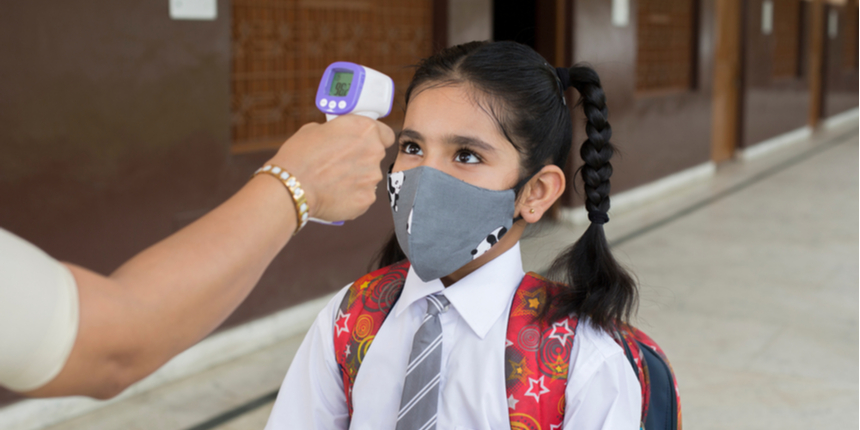Hybrid learning in schools can significantly reduce COVID-19 spread: Study
Press Trust of India | April 29, 2022 | 04:03 PM IST | 2 mins read
The finding will help decision-makers in the event of another COVID-19 wave or a similar infectious disease, the researchers said.

Washington: Hybrid learning utilising alternating school days for children offers a significant reduction in community spread of COVID-19, according to a study conducted in the US. The research, published in the journal BMC Public Health, shows that total closure in favour of remote learning, however, offers little additional advantage over the hybrid option.
Also read | IIM Jammu proposes to open an off-campus at Ladakh. apprises Lt Governor of dual-degree
The finding will help decision-makers in the event of another COVID-19 wave or a similar infectious disease, the researchers said.
"Early in the pandemic when school closures were becoming the norm, many debated the pros and cons of this measure," said Pinar Keskinocak, a professor at the Georgia Institute of Technology, US, and the principal investigator of the study. "Do we get enough benefit to offset the social costs and impacts on education? This research shows that there is a benefit in infection reduction, especially in the absence of effective pharmaceutical interventions, and most of the benefits can be attained with a hybrid approach," Keskinocak said in a statement.
Also read | NEET: CMC Vellore’s batch of 2022 is about to graduate; its size - 3 students
The study is particularly relevant for the early days of an infectious disease outbreak when policymakers face the difficult decision of enacting school closures in their respective districts.
Using an agent-based simulation model of COVID-19 spread, the researchers projected the impact of various school reopening strategies: complete closure, alternating school days where one cohort attended in person twice a week, and another group on the opposite days, younger children only, and regular.
Results showed that compared to schools reopening with regular attendance, the percentage of the population infected reduced by 13, 11, 9, and 6 per cent with each respective strategy, the researchers said.
Also read | Covid Cases in China: More Beijing classes go online in tightening of virus rules
They concluded that some level of closure -- younger children only, alternating days, and completely remote -- offers significant reduction in community-wide infections. The benefit of complete closure over a hybrid approach, however, was minimal. The assumption in all cases was that individuals who contracted the virus would remain at home, the researchers said.
"The additional benefit of complete school closure compared to hybrid was relatively small,” Kestinocak said. “The implementation of an alternating day model can be challenging but could have public health benefits early in the pandemic or during a new wave, providing social and learning benefits as well," the scientist said.
Reopening schools following a regular reopening strategy would lead to higher deaths, hospitalisations, and infections, the researchers said. Hybrid in-person and online reopening strategies, especially if offered as an option to families and teachers who prefer to opt-in, provide a good balance in reducing the infection spread compared to the regular reopening strategy, while ensuring access to in-person education, they added.
Follow us for the latest education news on colleges and universities, admission, courses, exams, research, education policies, study abroad and more..
To get in touch, write to us at news@careers360.com.